The narrator of Anna Burns’s Booker prize-winning novel, Milkman, likes to read on her way to work, even as she walks. Her preference is 19th-century novels. She likes to retreat to “the safety of the scroll and papyrus of earlier centuries”.
But in her claustrophobic community during Northern Ireland’s Troubles, it marks her out as a threat. Even her best friend sees her habit as “disturbing”, “deviant” and “not public-spirited”. The narrator is confused. “Are you saying it’s okay for him to go around with Semtex but not okay for me to read Jane Eyre in public?”
A woman doesn’t need to have grown up amid sectarian violence to relate to the narrator’s difficulties. Even in peacetime Bristol, where I occasionally flaunt my literacy in public – usually while stationary, but not always – I often run into difficulty. A woman reading a novel in a coffee shop, or on a park bench, or on public transport always runs the risk of someone – almost always a man – sidling over and asking: “So. A reader, huh?” Or, maybe: “Have you read any… um, um… Patrick O’Brian?” Or more likely, something completely un-novel-related.
It’s as if they assume I’m bored, or sad, or killing time until a man absorbs my attention. Usually, I am reading for work – so hard to explain this to the interrupter without inviting further interruption! – and yet I can’t help noticing that this never happens when I am on a laptop, when I might after all be doing something socially useful, perhaps involving a spreadsheet or a credit card. But if I am reading: who knows?
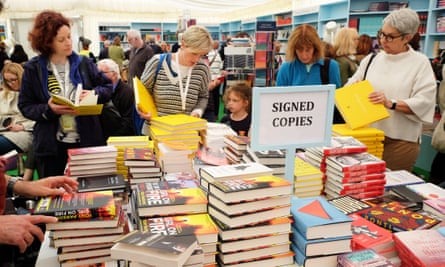
There is something about the female bookworm, face obscured by a novel, hidden within plain sight, possibly pondering the bigger questions of life, possibly fantasising, that can serve as an affront. The onus has long been on women to facilitate easy human relations, and lone reading is an occupation that is not compatible with the social self.
Damian Barr, author and founder of the Literary Salon in London, thinks that reading can still be a “rebellious and dangerous activity” for women. “There are men who still find it threatening and dangerous when a woman picks up a book,” he says. When he interviewed Nicola Sturgeon, the first minister of Scotland, for his salon, he was appalled at the abuse she had received for talking about novels. “People would say that reading fiction is not important, she should be running the country. Why is reading less valuable to a leader than, say, playing golf?”
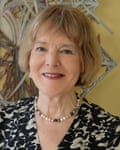
This goes some way to explaining the depth of feeling expressed by the women surveyed in a new book by Helen Taylor, Why Women Read Fiction: The Stories of Our Lives (Oxford University Press). Taylor, emeritus professor of English at the University of Exeter, surveyed more than 400 female readers to see how they relate to fiction. The responses are striking in their violence and intensity, in the sin and guilt associated with reading, as well as the defiance. One mother described how she tells her family that she is going downstairs to sort the laundry just so she can steal 10 precious minutes with a novel. Another wrote that for her, reading novels was “fractionally less important than breathing, but only just”. Others fear being caught in the act.
The idea that fiction is a female domain is taken for granted by most people involved in books. According to Nielsen Book Research, women outbuy men in all categories of novel except fantasy, science fiction and horror. And when men do read fiction, they don’t tend to read fiction by women, while Taylor claims that women read and admire male novelists, rarely making value judgments.
Women are not only keener buyers of fiction – surveys show they account for 80% of sales in the UK, US and Canadian fiction markets – far more women than men are literary festivalgoers, library members, audio book readers, literary bloggers, and members of literary societies and evening classes. It is also for the most part women who teach children to read, both at school and at home; and women who form book clubs – often actively shutting out men.
Ian McEwan once wrote: “When women stop reading, the novel will be dead.” Back in 2005, he and his son culled the library of his London house and took stacks of books to a local park to give away. He said every woman he approached asked for three, whereas every man “frowned in suspicion, or distaste” and usually said something like: “‘Nah, nah. Not for me. Thanks, mate, but no.’”
The history of fiction has always been a history of women readers. From the 18th century, the novel itself was aimed at a new class of leisured women, who didn’t receive formal education in science or politics. The male writers and critics who wrote and appraised the first novels legitimised the form, but Taylor says they “were quickly overtaken by women writers of sensation and romance fiction. Women took to it as a way of learning about other lives, fantasising about their own relationships and narratives that allowed them to challenge their own subordinate position to men.”
Though there have been histories of women’s reading, Taylor’s spirited, engaging study is the first that tries to capture how fiction matters to contemporary women of different ages, classes and ethnic groups. She says that when she tells men the title of her book, they get defensive. “They say, ‘But I read fiction too!’ I say, ‘I’m sure that’s true, but far fewer men do.’ When I scratch beneath the surface to find out why they have read a certain novel, they never give me an emotional answer. It’s always: ‘Well, it’s because I’m very interested in stories about the first world war or the Victorian period.’ Or they say they did history at university and want to follow up certain ideas. Or that they quite like to read Martin Amis because his characters are funny.”
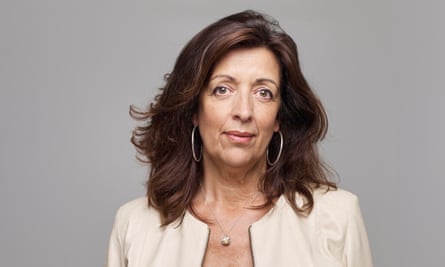
Louise Doughty, author of nine novels, including the bestseller Apple Tree Yard, notes that her male readers often express – or possibly dress up – their admiration for her books “as an act of anthropological research… One very sweet note from a man said, of Whatever You Love, ‘I learned more about how women feel from your novel than I did from decades of research I commissioned in my job as an advertising executive.’ The implication was he read it from a sincere desire to discover something ‘other’, rather than discovering a universal truth about human nature.”
Jonathan Coe, author of The Rotters’ Club series, considers himself unusual in attracting an equal male-female readership. But he, too, feels that men and women seek different things from fiction. “I dislike generalisations, as a rule,” he tells me, “but if the male reader’s choice is more thrillers or fantasy, while women are more likely to go for ‘literary’ fiction, that suggests to me that women read books to understand themselves, and men to escape themselves.”
Taylor says that it is rare to find men expressing the way in which reading has impacted on their emotional, spiritual and sexual lives. While her correspondents for the book frequently refer to how novels make them feel, their appetite for fiction is “gluttonous” and “omnivorous”; one says she has a “print tooth” and another likens reading to “secret eating”.
William Thackeray called fiction “sweets” – to ensure a balanced diet, he also recommended “roast”, by which he meant nonfiction. It’s surprising how enduring these puritanical associations have proved; fiction is still seen as “a slippery slope to idle self-indulgence”, as Taylor has it. One of her correspondents wrote: “having an affair is dangerous, masturbation requires solitude and privacy. Reading a book offers both without anyone noticing.” Some readers are less restrained. Taylor’s book includes Pierre-Antoine Baudoin’s 1760 painting, La Lecture (The Reader), which depicts a young woman apparently masturbating with one hand while stroking the pages of a novel with the other.
And while for many, reading is an intensely personal activity – “a lifeline”, “my best friend”, “the love of my life” – it is also an activity that women share with other women. The contemporary book group can trace a lineage back to 17th-century Bible study groups, 18th-century Parisian salons, as well as progressive suffrage groups where women have gathered together to self-educate. The sharing of reading is “something women undoubtedly do automatically in ways that are inter-generational, gregarious and collegiate,” says Taylor.
I’m currently on at least four active WhatsApp threads about fiction with people who have no connection to the publishing world. There’s my local book group of school mums exchanging messages about Madeline Miller’s novel, Circe; my mum (a retired teacher) sending me pages from the Edith Wharton she’s reading; a friend who has been weeping over Colson Whitehead’s latest; and several about Elizabeth Strout’s book, Olive Kitteridge, which I bought for two of my best friends. We send each other lines from the book that most resonate, and we have all recommended it to our mothers – and so the chain of bookish messages proliferates.
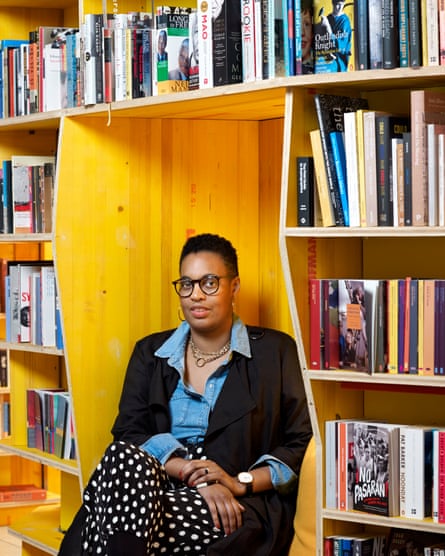
Kate Mosse, novelist, playwright and founder director of the Women’s prize for fiction, suggests that book clubs provide an excuse for women to spend guiltless time with their female friends. “[It] has a sense of there being a purpose to it – it’s not simply leisure – so women allow themselves to take time out of day-to-day life.” Women also use books to gauge one another’s aptness for friendship. “For me, if someone doesn’t value Wuthering Heights (or thinks it overblown, or baggy, or too wild), then I like them just a tiny bit less.”
Sharmaine Lovegrove, publisher of Dialogue Books, recognises that women’s book groups often act as “gatekeepers of our culture”. She made a conscious effort to start a different sort of reading club: she launched a year-long literature course, Rewriting the Canon, held at Liberty department store in London, with the aim of expanding the western canon to include more writers of colour. In collaboration with gal-dem magazine, she drew up a list that included Passing by Nella Larsen, Giovanni’s Room by James Baldwin and Their Eyes Were Watching God by Zora Neale Hurston. It ended up looking very different from “women sitting around drinking wine in Wiltshire or Richmond”.
It’s striking how many women in Taylor’s book talk about fiction giving them social mobility. A lot of her correspondents described themselves as having come from working-class or poor backgrounds where there were no books in their house, but through libraries, schools, friends and extended family, they had pulled themselves up. Being accepted as a good reader has long been one of the ways for women to achieve greater social status, Taylor says.

Meanwhile, there are many female authors who understandably feel ambivalent about whether to embrace this bond with their female readership. Roxane Gay once noted that: “Male writers get treated as intellectuals, women writers get treated as friends.” Will their writing be dismissed as “domestic saga” or “chick lit”? Will it be a sure route to pastel-coloured book jackets?
Responding to a comment by Norwegian author Karl Ove Knausgård that “reading is feminine”, novelist and essayist Siri Hustvedt took issue with the idea that the activity should somehow be “tainted” for being associated with women. It elides a historical double standard: literature is sidelined as a fey, womanly business; but for centuries only a privileged class of boys were taught literacy skills. Asked what she thought posed the biggest threat to literature, Hustvedt said: “That it becomes, in the eyes of culture, a highly feminised form. Far more women read fiction than men, and because of this, novels have become marginalised as serious texts.”
It’s a prime concern to Mosse as founder of the Women’s prize for fiction. “Implicit in that is the idea that men’s opinions matter more; that if something is predominantly considered a female activity, then it is not as valuable and important.” And even if women are speaking to other women, why would that be any less meaningful than men speaking to other men? “Women artists must be allowed to focus on their own achievements, their own writing, their own voices without always being asked to consider the external response to it.”
Hilary Mantel spoke to Taylor about her fear of being “Little Womaned” – boxed as an author who is incapable of writing about the “wider society” because she “cannot pull away from personal preoccupations” about what women want.
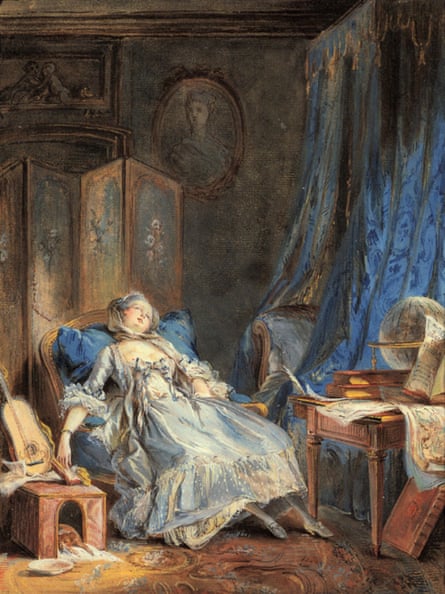
“It’s not surprising that Hilary Mantel wanted to get entirely away from a female world with her Tudor series because she wanted recognition,” Taylor says. “But at the same time: what could be better as a writer than to feel you are speaking directly to women who see you as a friend? Why would any author object to that? You can say it’s fluffy, but actually it’s real and rather magical. Let’s speak up for the fact we read fiction because we want to explore our feelings. We cry at the end of a romantic novel because we are both moved by someone else’s plight but also because it’s stirring up bittersweet things in us.”
Emotional intelligence is something of which women are rightly proud. A woman will often be called upon to play the family peacemaker, to ease social relations, to mediate friendships. She might find in Emma Woodhouse or Dorothea Brooke, say, instructive examples.
Taylor feels this needs to be celebrated along with the ways in which women share the fiction that warms, comforts and sustains them. I ask Coe whether he sees marked differences in the way men and women respond to his novels. “Female readers in the signing queue will sometimes tell you directly how much a book has moved them, whereas male readers will say how much they share my enthusiasm for obscure bands like Hatfield and the North,” he says. “But I think, essentially, they are saying the same thing: it’s just that men sometimes need these proxies, these intermediaries – football, music, etc – as a way of voicing their emotions.”
Taylor says she “always warms to men who read novels” and I agree – we both married our husbands partly because they were keen readers of fiction. It’s no coincidence, I’m sure, that the most emotionally intelligent men I know regularly read and enthuse about women writers. “I love that they’re not reading just to get facts,” Taylor says. “I think they’re reading fiction to try and understand the world from an oblique perspective. Fiction takes you on indirect routes to truth.”
Why Women Read Fiction: The Stories of Our Lives by Helen Taylor is published by Oxford University Press (£14.99). It will be Radio 4’s Book of the Week starting 13 January
What we’re reading
Miyuki Watanabe
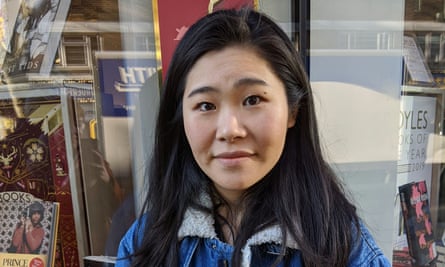
Currently I’m reading The Alchemist [by Paulo Coelho]. It’s really inspiring, I love it. I do like nonfiction – biographies, environmental [texts], anything that helps me broaden my empathy – but that’s true of fiction as well. After delving into nonfiction, it’s nice to go back to fiction and have an easy read before bed.
I think women are more empathetic [than men] and more social – women read fiction to get into the mindset of others. And a lot of women have book clubs and things with friends – I think that’s a female thing. That’s unfortunate though – everybody should have a book club!
Liz Burdon

I’m reading a series of children’s books about refugees, by Alan Gratz. I’m interested in refugees, so I’m reading around the subject and finding it fascinating. Fiction is the best way into history and into humanity. I’m from Dublin originally and if anyone is interested in the history of Ireland I urge them to read Dubliners by Joyce first – and then look at the history.
There’s definitely a difference between what men and women read. In my teaching career, I saw boys who were reluctant readers get completely into reading if you find the right genre. It was all about genre for them.
Rebecca Vile

I just started reading My Sister, the Serial Killer [by Oyinkan Braithwaite]. I’m only at the first chapter, but it’s getting me in, which is good. I just thought I’d try something new – I read a review of it in a couple of different newspapers.
I’m trying to get into reading more fiction, because I wasn’t into it for a while but I think it helps your brain. It expands you in a different way. My husband just reads dry academic stuff – forget it, I am not going there.
Marie-Claire Chappet

I’m rereading The Catcher in the Rye [by JD Salinger]. A friend said it was worth rereading as an adult – we both read it when we were 10 or 11. I still love it, but I want to be like [the protagonist Holden Caulfield] a lot less! As an adult, you’re like, “Poor boy…”
Women are more curious [than men], that’s probably why fiction appeals. I guess we’ve got more to escape from, haven’t we? And we’ve got more access to other kinds of perspectives, because we’re othered by society. I try to read an even balance of men and women, but my tastes veer more towards female writers.
Linda Cyrus

I like to share books with my daughter. The last book I read was [a memoir] about a woman who has mental health problems – Sour [by Tracey Miller]. Now I’m trying Queenie [by Candice Carty-Williams].
Women like to read about love and romance – it feels like a way of settling your mind, taking away today’s mental stress. Just fix it yourself, rather than reading the news all the times, because the news is really depressing.
Gwen Coffey

I’m reading Tales of the City [by Armistead Maupin]. It’s lovely. I’ve seen the TV version and it’s so close to the book that I know what’s going to happen but I’m still enjoying it.
Women have a bit more imagination [than men]. I know the fantasies I get into when reading – I live it. I’m in love with a character in a book, I’ve been in love with him for a couple of years now. He’s a policeman in Tony Parsons’s books and he’s been stabbed, shot, buried alive… I think: I must save him!
Interviews by Holly Williams
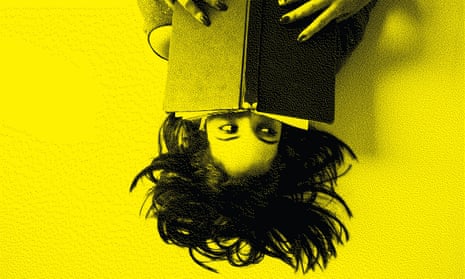

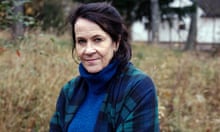


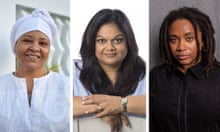

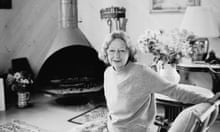
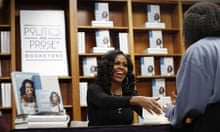


Comments (…)
Sign in or create your Guardian account to join the discussion